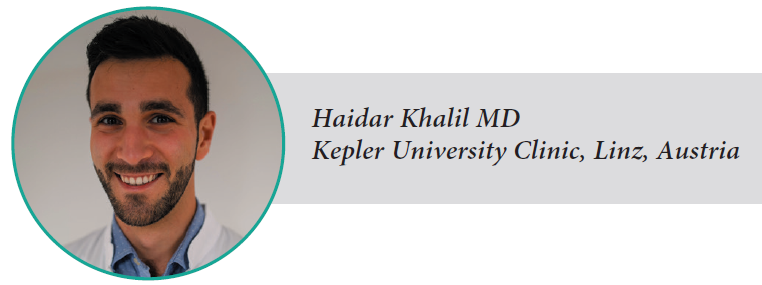The last 18 months had a great impact on online education. Webinars were popping up everywhere, and the demand was huge during lockdown. For me, as a resident in the third year, this really was a chance to have access to loads of online material.
The pros are obvious: Online education is barrier free, no additional costs for travelling, and still international exchange is possible thanks to easily accessible technology. So, why even attend a live congress? Is it worth it? The answer after visiting ESCRS 2021 is clear: Yes, it was absolutely worth it.
As a co-organiser of many webinars and a fully held online congress in 2020 (Ophthalmology Congress, Linz, Austria), I am an advocate for this type of knowledge exchange. Still, human interaction cannot be reduced to a screen. Since I haven’t visited any international congresses during the pandemic, the attendance at the ESCRS 2021 convinced me about the importance of on-site events. Is there anything nicer than having a coffee with colleagues after a great lecture to exchange ideas and thoughts? Running into friends, mentors, idols, and meeting new people really strengthens our community and makes this meeting so exciting.
Holding the Congress at the RAI-centre Amsterdam offered advantages regarding a very easy connectivity to the city and the airport as well a spacious congress hall making it possible to hold several lectures simultaneously. The Congress was well organised—I could easily orientate and filter out significant lectures. The programme itself offered a wide range of lectures, talks, and courses throughout the four days and sometimes made it hard for me to decide where to go.
Starting Friday, I first visited the lecture by Prof Gerd Auffarth, “There is no free lunch in optics.” A brilliant and comprehensive lecture by this year’s Binkhorst Medal winner, his enthusiasm was infectious. It was followed by the Main Symposium, “Managing Herpetic Keratitis,” giving a clinically relevant and structured overview—information I can make use of in my routine. The video sessions on Saturday (“You make the call”) and Sunday (“Getting into trouble”) were very entertaining and made the Congress even more diverse. Also, the Young Ophthalmologists sessions were very interesting and helpful. In summary, a colourful mix was put together and there was something for everyone.
“Real” interactions with companies are much more vivid than in online appearances. Obviously, it’s not just the raw information and the numbers that count and can be looked up by anyone online in a brochure. It is about seeing and touching products and instruments and maybe even visiting a wet lab and trying a new phaco machine. The satellite symposia also gave scientific insight on newly designed IOLs and products.
As a balance to a long day at the ESCRS, Amsterdam offered numerous off-site activities with a variety of restaurants and bars. This is a buzzing, lively city with international character. Strolling through the streets of this city is worth it.
I am very glad to have attended this year’s meeting and am looking forward for the 40th anniversary of ESCRS next year.


